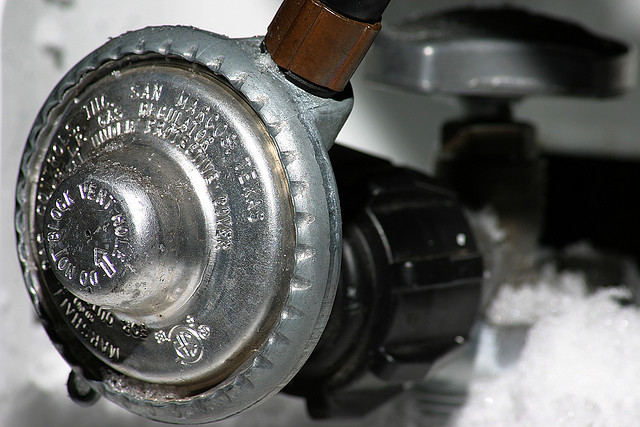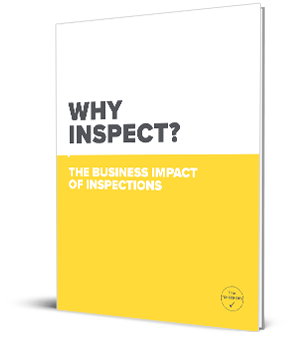Commercial equipment isn’t the only type of equipment that needs inspecting. Anyone who lives where inspections of personal vehicles are mandatory can attest to that.
But the importance of inspections goes beyond what the law requires—in commercial inspections and in our everyday lives. Inspecting equipment is simply common sense.
Whether it’s your hot water heater or a commercial vehicle, don’t you want the equipment to work as it should and not to fail on the job? Of course you do, and regular inspections are the best way to ensure that happens the vast majority of the time.
Consider a piece of hazardous equipment that many people use in their personal lives quite often—propane cylinders hooked to outdoor barbecue grills. A lot of people don’t check over the grill before grilling, and most of the time, everything’s fine. But isn’t it better to take a quick look?
Propane is highly flammable and explosive. That’s why you should never store your grill and cylinder in the garage, or cook with it in the garage. Propane’s volatility also means that a leaking cylinder can easily cause a sudden fire, ignited by the burner flame. Such a fire can get out of control quickly, particularly if the grill is located too close to the home or other flammable material, or if it is covered with grease or food buildup.
Best to keep the grill clean—and to check the connections and listen for leaks before you fire it up!
Just common sense, right? A simple step that can prevent damage to your home and/or a trip to the emergency room with burns. Who wouldn’t do that?
But as so often happens with equipment that should be inspected before use, it’s easier to just start using it.
That mindset is also pervasive in the business world. Users of commercial equipment find it easier to just start using it, and management doesn’t want to “hinder productivity” so it implicitly allows that behavior.
When this happens, “inspections” may be done to fulfill legal requirements, but they’re just pencil-whipped documents. They don’t mean anyone actually “checked the connections” and “listened for leaks.”
Most of the time, equipment works like it should and doesn’t break down—even if it wasn’t inspected properly, so it’s easy to forget about the consequences of in-use failures. It’s similar to people who always speed while driving, and because they never get caught, they don’t think about what it will do to their insurance premiums … then they finally get caught, and they pay the price.
With the right tools, such as The Checker equipment inspection checklists, inspections don’t have to be difficult or overly time-consuming. In a workday, they can be as relatively brief as a quick check of your grill’s cylinder.
Productivity certainly won’t take a hit. On the contrary, inspections almost always result in productivity gains due to factors such as lower maintenance costs, better equipment scheduling, and lower health and safety costs.
And you get the benefit of peace of mind, not having to worry about putting out any fires.
Image courtesy of akeg, Creative Commons.











